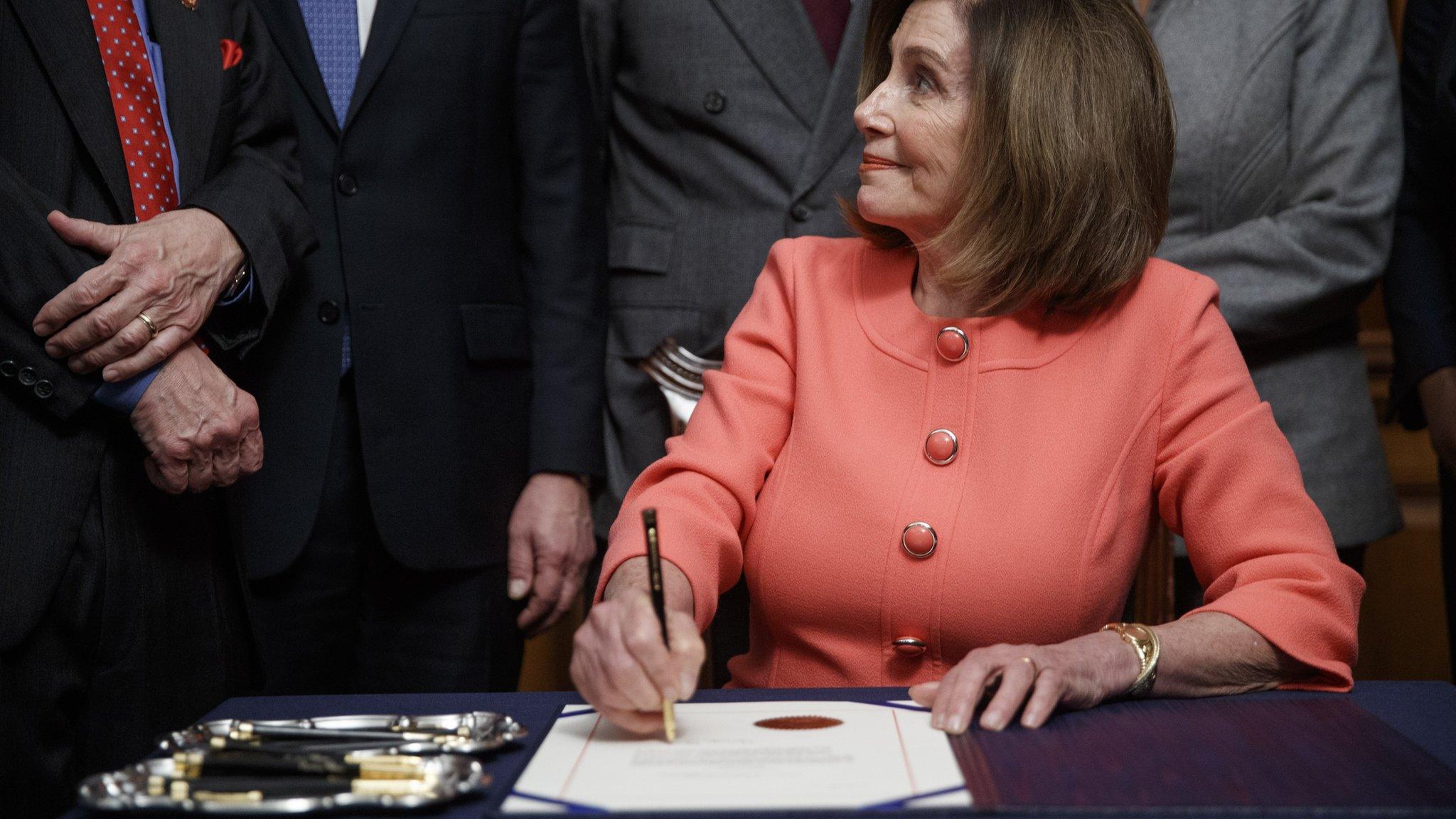Trump impeachment trial: Who will win battle for witnesses?
- Published
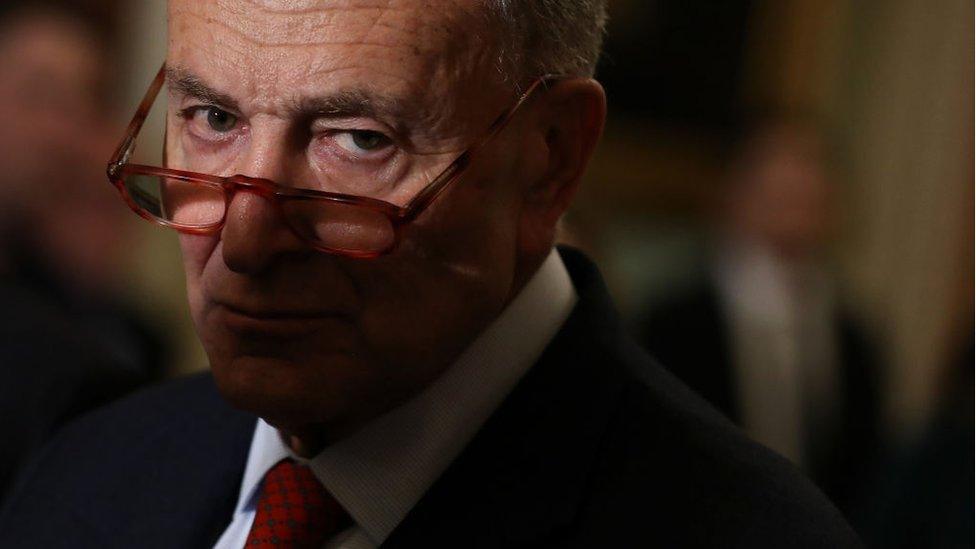
Chuck Schumer, the Senate's top Democrat, will be a key figure in Donald Trump's impeachment trial
It is hard to exaggerate the importance - and the self-importance - of the hundred men and women who make up the US Senate.
They are kings of the universe, and expect to be treated as such.
Flunkies accompany them wherever they go, a veritable army of interns take care of the tedious mundanities of life; they have legislative affairs directors, communications chiefs, fundraising teams, speechwriters.
But this week, and for only the third time in American history, the senators become humble - or not so humble - jurors. And the Sergeant at Arms of the Senate has already told them in no uncertain terms they need to be on their best behaviour.
And something amazing happened. They fell silent.
The usual conversations about holidays, good restaurants, gossip about who might be about to stick a knife into whom came to a halt. There was hush. It was a slightly spine tingling moment. It was as though the gravity, the solemnity of the undertaking was dawning. They were about to try the president, with the power to remove him from office if two-thirds of the senators voted for it.
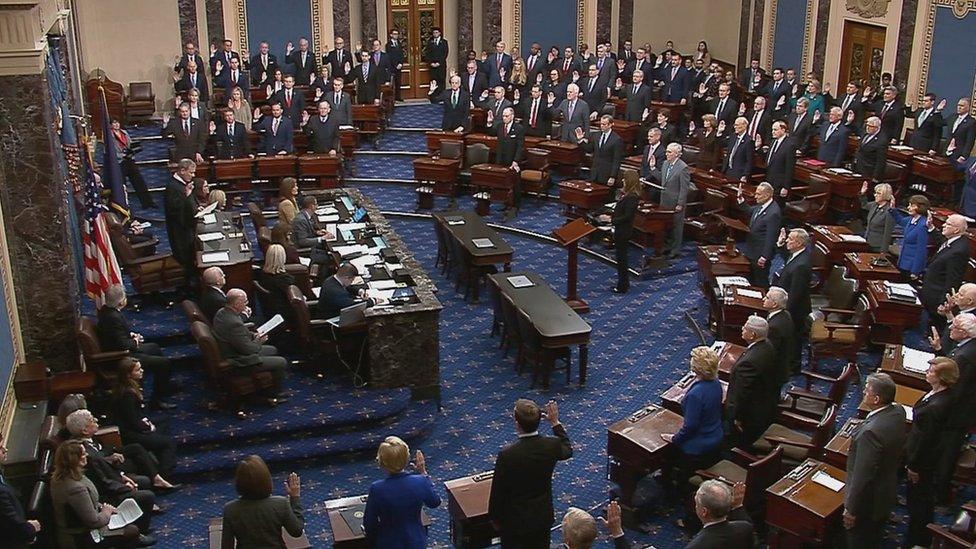
Donald Trump's impeachment has now moved to the Senate, where the lawmakers will act as jurors
The battle still to be had between Democrats and Republicans is whether witnesses will be called. One person I spoke to said you should think of this like the old cold war strategy of MAD - mutually assured destruction.
For every John Bolton called by the Democrats - Donald Trump's former national security adviser who was reportedly deeply unhappy about what was going on; there's a Hunter Biden - the former vice president's son - whom the Republicans might subpoena. One impeachment expert told me he thought this would be a trial that would proceed with no witnesses at all.
The senators have also been given a memorandum about decorum; the sort of instructions that are given to a group of 11-year-olds when they move from their freewheeling primary school to secondary school.
What's Ukraine got to do with the Trump impeachment?
"During the impeachment proceedings, standing will not be permitted on the floor and this requirement will be strictly enforced," the memo informs them. "Accordingly, all senators are requested to remain in their seats at all times they are on the Senate floor during the impeachment proceedings."
And it goes on: "No use of phones or electronic devices will be allowed in the Chamber. All electronics should be left in the Cloakroom in the storage provided." Don't speak to your neighbour; don't bring any reading material that isn't relevant to the subject under discussion. And no flicking of ink pellets. OK, I made that last bit up, but you get the drift.
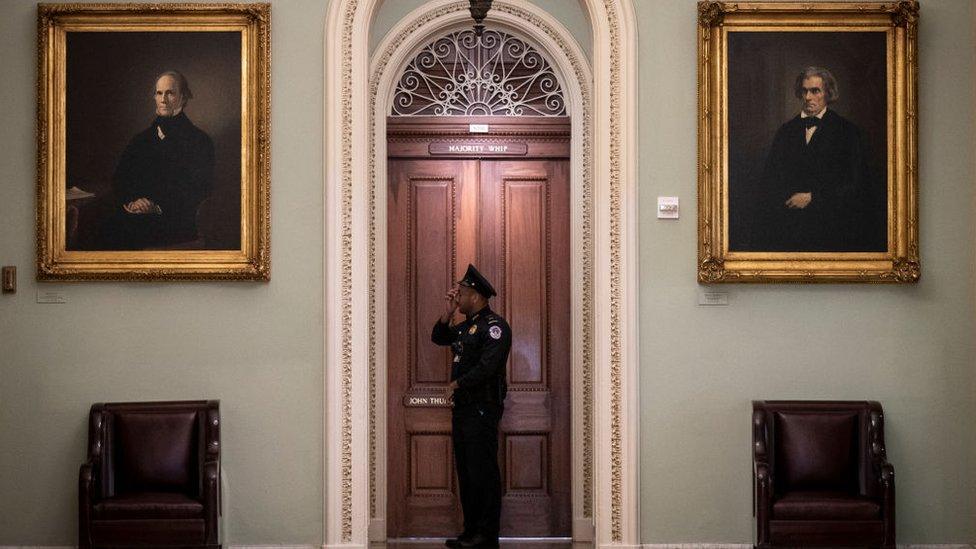
The Supreme Court Chief Justice John Roberts, who will preside over the trial also made them swear an oath to "do impartial justice".
You might get silence, you might get the senator to give up their smart phones, you might even get everyone sitting down - but impartial justice? That's a taller order. Because - for all the talk of juries and witnesses, and evidence and judges - this only looks like a judicial process. Ultimately, it is political.
And as things stand on the key issue at hand - whether Donald Trump committed high crimes and misdemeanours in his behaviour with the Ukrainian president, and his efforts to thwart the Congressional investigation that flowed from it - it is pretty clear how the jury is going to fall.
The 53 Republicans will vote to acquit; the 47 Democrats will vote to convict. And Donald Trump will walk free - potentially to become the first impeached president in the history of the United States to win re-election.

Want to find out more?

A SIMPLE GUIDE: If you want a basic take, this one's for you
GO DEEPER: Here's a 100, 300 and 800-word summary of the story
WHAT'S IMPEACHMENT? A political process to remove a president
VIEW FROM TRUMP COUNTRY: Hear from residents of a West Virginia town
CONTEXT: Why Ukraine matters to the US
FACT-CHECK: Did Ukraine interfere in the 2016 election to help Clinton?
CASE FOR & AGAINST: What legal scholars say about Trump conduct

- Published16 January 2020
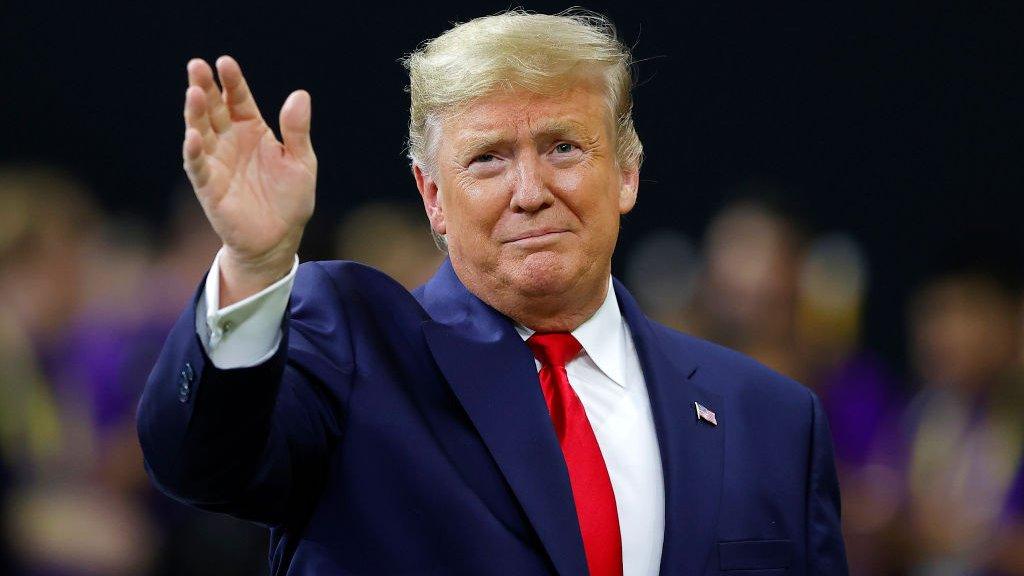
- Published15 January 2020
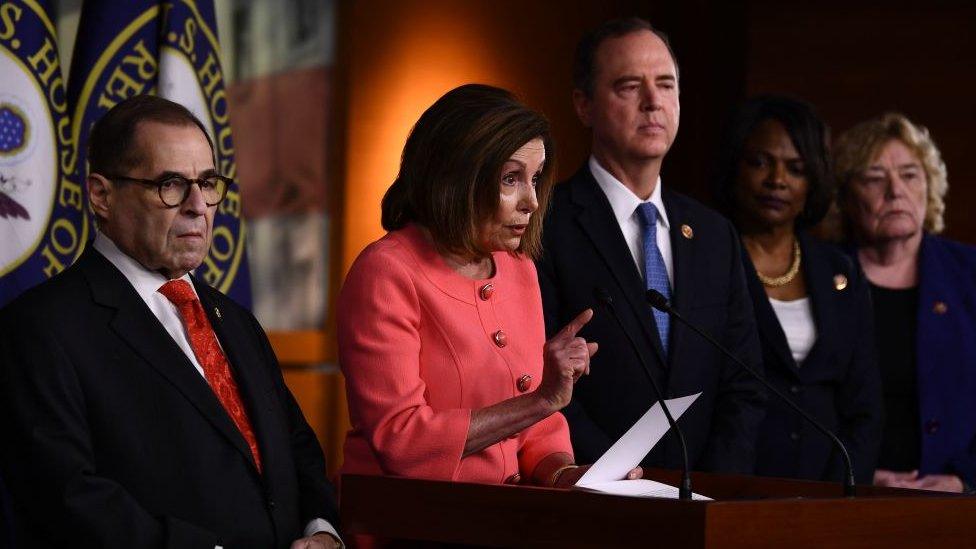
- Published16 January 2020
